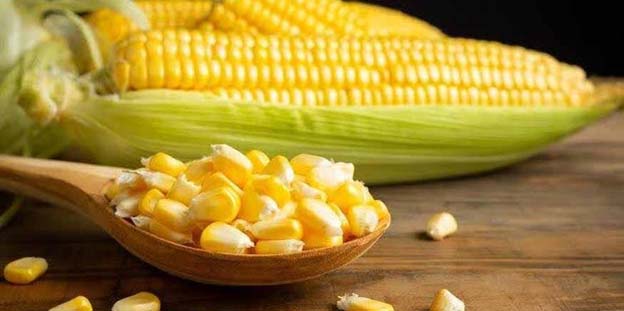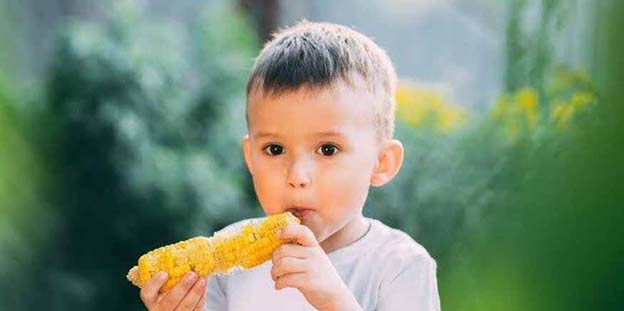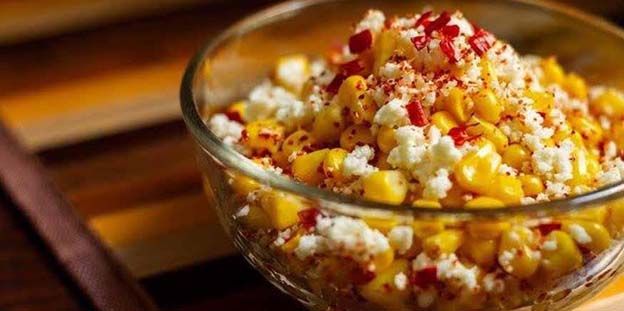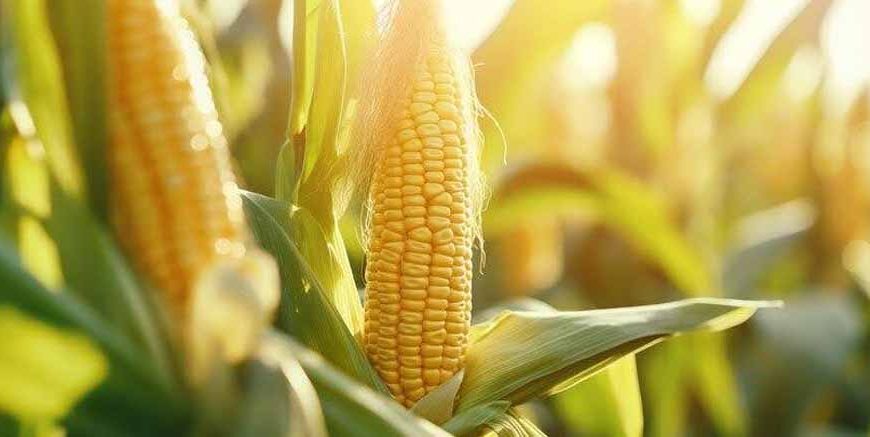Being able to provide nutritious and appetising meals for your kids is a challenge that every parent faces. Interestingly, many grains, like corn, are packed with nutrition, health, and taste. Although people of all ages enjoy grains, not all grains are suitable for toddlers. This guide explores whether corn is good for toddlers, when to introduce it into your baby’s diet, the benefits of sweet corn, and its potential side effects on your little ones.
Is Corn Good for Toddlers?
Yes, corn is generally considered safe for kids. However, there are a few things that you need to keep in mind when introducing corn to your little one. Here are some things to keep in mind
- Choking hazard
- Digestibility
- Allergies
- Pesticides
When and How to Add Corn to Your Baby’s Diet?
Corn can be given to babies after they are 8 months old, once they have been introduced to solids. However, as corn is slightly difficult to digest, many parents wait until the baby is at least 12 months old.
Here’s how to gradually introduce corn:
- Start with soft corn purée.
- After 1 year, try creamed corn.
- Once your child can chew well, offer soft corn kernels (always supervise to prevent choking).
Tips for Introducing Corn in Your Baby’s Diet
Here are some things to keep in mind:
- Avoid corn as one of your baby’s first foods.
- Choose fresh, brightly coloured corn with plump kernels.
- Avoid canned corn for infants, as it often contains added salt and sugar.
Nutritional Value of Corn:

- Carbohydrates
- Fibre
- Protein
- Vitamins
- Vitamin B1 (Thiamin)
- Vitamin B5 (Pantothenic Acid)
- Vitamin C
- Minerals
- Magnesium
- Phosphorus
- Zinc
- Manganese
- Antioxidants
- Healthy Fats
Corn is predominantly made up of what could be termed as ‘stubborn’ energy in the form of complex carbohydrates for the toddler’s busy lifestyle. They are not easily digestible and free-flowing into the bloodstream, hence, ensure that there is a steady supply of glucose in the body.
Corn is a fibre-included type of food. It helps to facilitate bowel movements and let the food pass through the digestive system
Of course corn is not as high in protein as some grains, but still it has a certain percentage of protein that is very important for your toddler.
Corn is rich in several important vitamins:
They are vital in energy production processes and in the support of the nervous systems of the human body.
Assists in the building up of proteins, carbohydrates, and fats as well as breaking them up for their utilisation in the body.
A compound that has specific activities as an antioxidant and in the enhancement of the immune response and as an aid to the absorption of iron.
Corn provides several essential minerals:
Definite for skeletal structure improvement and energy generation context.
Collaborates with calcium to contribute towards building bones and teeth.
Are helpful for various aspects of immune function and for the body’s response to injuries, including the healing of wounds.
Incorporates in bone formation and is also a factor in wound healing.
It is most valuable for corn lovers because yellow corn contains lutein and zeaxanthin, which are important for eye health.
Corn is also a source of trace amounts of healthy unsaturated fats, which are also essential in the development of the brain regions.
Types of Corn
Corn comes in various forms, each with unique characteristics, textures, and uses. Here’s a breakdown of the five major types:
- Sweet Corn
- Dent Corn
- Flour Corn
- Popcorn
This is the type most commonly served at the table. It’s harvested when the kernels are tender and full of natural sugar. When cooked well or mashed into purees, its soft texture and sweet flavour make it ideal for toddlers.
Named for the dent that forms on each kernel as it dries, this type is primarily used in processed foods, livestock feed, and industrial products. It’s not typically served as a vegetable but can be used to make cornmeal and corn syrup.
This variety has soft starch-filled kernels, making it easy to grind into fine corn flour. It’s rarely used whole and is mainly used in baking.
A special variety of flint corn, popcorn kernels have a hard shell and a soft starch centre. When heated, they burst into the fluffy snack we know and love. While fun for older kids, popcorn is not suitable for toddlers due to choking risks.
Benefits of Eating Corn:

Now that we’ve looked at the nutritional profile of corn, let’s explore how these nutrients translate into specific benefits for your toddler:
- Energy Boost:
- Digestive Health:
- Growth and Development:
- Brain Function:
- Immune Support:
- Bone Health
- Eye Health:
- Healthy Weight:
- Antioxidant Protection:
- Gluten-Free Option:
- Dental Health:
- Sensory Development:
- Introducing New Flavours:
Corn contains complex carbohydrates, which means that they are broken down slowly and, therefore, do not cause the blood sugar level to rise as it would for foods with simple sugars. Hence, corn gives your toddler slow energy to run and play as well as growth energy.
While the protein aids in building muscles, the fibre obtained from the corn assists digestion and encourages bowel movement.
The protein content, however, as already highlighted, is quite minimal. It contributes to your toddler’s daily protein intake, helping in muscle formation and growth.
Another loses some B vitamins, including thiamin, which is important for the upkeep of developing brains in corn.
Vitamin C and Zinc, present in corn, are essential in building your toddler’s immune system and defending it against common illnesses.
Minerals present in corn, such as magnesium and phosphorus, support the formation of bone and tooth tissues in the body.
Another form of carotenoids, lutein and zeaxanthin, present in corn, helps maintain proper eye health. They are also antioxidants, and consuming them might prevent eye diseases as one ages.
Corn contains dietary fibre, so your toddler can feel full and have slight control over weight gain.
They also contain fibre, which means your toddler will not overeat; given that most corn is a nutritious food, it will help your child maintain adequate body weight.
But for every child who suffers from celiac disease or gluten intolerance, corn is a healthy substitute since it constitutes a gluten-free grain.
Just like orthochronous wear, chewing corn on the cob or on any other form incurs saliva secretion, which assists in cleaning the teeth.
The texture of the corns is quite distinct and your toddler can feel it and this could help them in the sensory department.
Corn has a natural sweetness that most children of the pulling age like. In this way, DVP can act as an entry point for getting a child acquainted with other vegetables and increasing his/her food choices.
Side Effects of Corn in Toddlers
While corn is nutritious, it may not suit every child. Be aware of the following potential side effects:
- Digestive issues: Corn is high in insoluble fiber, which may cause bloating or gas in some toddlers if consumed in large amounts.
- Choking hazard: Whole corn kernels can pose a choking risk, especially for babies under 1 year. Always mash or puree it for younger children.
- Allergic reactions: Though rare, some children may have an allergy to corn. Signs include rashes, swelling, or digestive discomfort. Always introduce corn in small amounts initially.
- Difficulty in digestion: Babies under 6 months may not digest corn properly due to immature gut function.
Corn Recipes:

- Creamy Corn Soup:
- 2 cups fresh or frozen corn kernels
- 1 small onion, diced
- 1 small potato, peeled and diced
- 2 cups low-sodium chicken or vegetable broth
- 1/4 cup milk (or non-dairy alternative)
- 1 tablespoon olive oil
- Sauté onion in olive oil until soft.
- Add corn, potato, and broth. Simmer until vegetables are tender.
- Blend until smooth, then stir in milk.
- Serve warm.
- Corn and Cheese Quesadillas:
- 2 small whole wheat tortillas
- 1/4 cup cooked corn kernels
- 1/4 cup grated mild cheddar cheese
- 1 tablespoon mild salsa (optional)
- Sprinkle cheese and corn on one half of each tortilla.
- Fold tortillas in half.
- Cook in a dry skillet until the cheese melts and the tortilla is golden.
- Cut into wedges and serve with salsa for dipping if desired.
This smooth soup is perfect for younger toddlers or those still getting used to different textures.
Ingredients:
Instructions:
A fun finger food that’s easy for toddlers to handle.
Ingredients:
Instructions:
Do not forget to attend to the child during the meal and change the consistency according to the child’s age.
The recipes here are ideal as a basis for later adjusting to your toddler’s specific tastes and dietary requirements. It’s a good idea and fun to add corn as part of your toddlers’ diet at this age. This sweet-flavoured and highly versatile grain can easily be introduced to your little one’s meal and be the way to go, owing to the grain’s good nutrition profile.
Take Away
Introducing corn to your toddler can add variety and essential nutrients to their diet. While it’s not a substitute for more nutrient-dense vegetables and cereals, its natural sweetness and versatility make it a delightful addition. Always monitor for any adverse reactions and consult with your paediatrician if you have concerns. You can also switch to gluten-free options. Check out our blog, Easy Gluten-Free Snack Recipes For Kids. You can also visit EuroKids Blogs for more information on your little one’s health and nutrition. Don’t forget to check our EuroKids Preschools for the first step in your child’s learning journey.
















